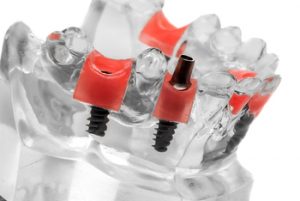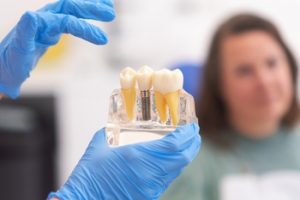In recent years, dental implants have emerged as a transformative solution for those with missing teeth. Amidst the global landscape of overseas dental implants, Bangkok has become a focal point for individuals seeking these life-changing treatments. This trend, however, prompts an intriguing question: Why are patients from various corners of the world flocking to Bangkok for dental implant procedures despite concerns about the city’s reputation for lower-quality dental services?
This article aims to dissect the factors contributing to the rise of dental tourism in Bangkok, exploring the delicate balance between cost savings and potential health risks. Join us on a journey through the dynamic landscape of dental implant treatments in Bangkok and discover the motivations behind this intriguing global phenomenon.
The Attraction Of Bangkok: Currency Exchange And The Dental Dilemma
Bangkok’s appeal as a dental destination lies in its vibrant culture, breathtaking landscapes, and the promise of affordable dental treatments. Currency exchange rates often favour those seeking dental procedures, making Bangkok an enticing option for individuals from countries where dental care comes with a hefty price tag.
However, the crux lies in balancing financial considerations and potential health risks. In pursuing economical dental solutions, individuals may inadvertently jeopardise their oral health by opting for seemingly budget-friendly treatments.
Unveiling The Risks Of Dental Tourism In Bangkok

In recent years, Bangkok has emerged as a hotspot for dental tourism, drawing patients from around the globe seeking affordable dental implant treatments. While the allure of cost savings is undeniable, addressing the inherent risks associated with dental tourism in destinations like Bangkok is crucial. Let’s delve into the pitfalls individuals may encounter when opting for dental implants abroad.
Quality Concerns And Compromised Materials
One of the primary risks associated with dental tourism in Bangkok is the potential compromise on treatment quality. Some clinics may use substandard materials or equipment to cut costs, leading to concerns about the longevity and effectiveness of dental implant procedures. This compromise on quality can have long-term consequences, affecting the aesthetics and functionality of the implants.
Regulatory Disparities And Lack of Oversight
Dental care regulations vary widely across countries, and dental tourism destinations may not adhere to the same standards as patients’ home countries. The lack of consistent oversight and regulatory disparities can expose individuals to increased risks. Patients might find themselves in clinics with lower hygiene standards, safety, and overall dental care practices, leading to potential complications and dissatisfaction with the treatment outcome.
Communication Challenges And Misunderstandings
Navigating a dental implant procedure in a foreign country introduces communication challenges. Language barriers may hinder effective communication between patients and dental practitioners, impacting the clarity of treatment plans, expectations, and postoperative care instructions. Misunderstandings can result in dissatisfaction, as patients may need help comprehending the details of their dental implant treatment.
Limited Recourse In Case Of Complications
Patients undergoing dental implant treatments abroad may face challenges in seeking recourse in case of complications. Legal and logistical barriers could make it difficult for individuals to address issues or receive follow-up care, especially when they return to their home country. This lack of continuity of care can exacerbate problems and leave patients vulnerable.
Unlocking The Transformative Benefits Of High-Quality Dental Implants
Investing in high-quality dental implants can be a life-changing decision, providing individuals with many advantages beyond restoring a missing tooth. In contrast to the potential risks associated with dental tourism, let’s explore the unparalleled benefits one can experience when opting for superior dental implant treatments, particularly in a country like Australia.

Natural-Looking Aesthetics
High-quality dental implants seamlessly blend with natural teeth, delivering a smile that looks and feels authentic. The meticulous craftsmanship of quality materials ensures that the implant mimics the colour, shape, and texture of surrounding teeth, enhancing overall facial aesthetics and boosting confidence.
Enhanced Oral Functionality
High-quality dental implants offer exceptional stability and functionality, unlike temporary or less durable solutions. These implants are reliable anchors for artificial teeth, allowing individuals to easily bite, chew, and speak. Restoring full oral functionality contributes to improved dietary choices and overall well-being.
Preservation Of Adjacent Teeth
Dental implants, when of high quality, provide a stable foundation that preserves the integrity of adjacent teeth. Unlike traditional bridges that require altering neighbouring teeth for support, implants stand independently, minimising the impact on natural teeth and promoting long-term oral health.
Prevention Of Jaw Bone Loss
A significant advantage of quality dental implants is their ability to prevent jaw bone loss, a common issue associated with missing teeth. The implant post, made of biocompatible materials, stimulates the jaw bone, preventing deterioration and maintaining the structural integrity of the facial bones.
Longevity And Durability
High-quality dental implants are designed to withstand the test of time. Materials such as titanium for the implant post and ceramic zirconia for crowns ensure durability and resilience. This longevity translates to a cost-effective solution over the long term, reducing the need for frequent replacements or adjustments.
Improved Speech And Pronunciation
Dental implants improve speech and pronunciation, addressing challenges individuals with missing teeth may face. The stability and secure fit of the implants allow for natural articulation, enabling individuals to communicate confidently without concerns about speech impediments.
Boost To Overall Confidence And Quality Of Life
Perhaps one of the most profound benefits of high-quality dental implants is the positive impact on an individual’s confidence and quality of life. A restored and aesthetically pleasing smile can transform self-esteem, social interactions, and overall well-being, highlighting the far-reaching effects of investing in superior dental implant treatments.
Exploring Diversity: Types Of Dental Implants For Personalised Care

Dental implantology offers diverse implant types designed to address specific needs and considerations. Choosing the right type of implant is crucial for achieving optimal outcomes. In Australia, renowned dental clinics provide a comprehensive array of options, ensuring individuals receive personalised and effective treatment plans tailored to their unique dental requirements.
Endosteal Implants (Conventional Implants)
Endosteal implants are the most common dental implant, surgically placed directly into the jawbone. These implants are typically shaped like small screws and serve as a stable foundation for individual crowns, bridges, or even implant-supported dentures. Endosteal implants are versatile and suitable for various cases, providing a reliable solution for single or multiple missing teeth.
Subperiosteal Implants
Suited for individuals with insufficient bone height, subperiosteal implants are placed on top of the jawbone but underneath the gum tissue. These implants have a metal framework that protrudes through the gum, supporting artificial teeth. Subperiosteal implants offer a viable option when traditional implants might not be feasible due to bone loss.
Zygomatic Implants
Zygomatic implants are an advanced option for individuals with significant bone loss in the upper jaw. Instead of anchoring into the jawbone, zygomatic implants attach to the cheekbone (zygoma). This innovative approach provides a stable base for dental prosthetics, even when traditional implants are not feasible.
Full-Mouth Implants
The full-mouth implant technique is a revolutionary approach designed for individuals requiring full arch reconstructions, such as those with extensive tooth loss. This method involves placing only four strategically positioned implants to support a fixed denture set. Full-arch implants offer efficiency and reduced treatment time compared to traditional full-arch implant procedures.
Immediate-Loaded Implants
Immediate-loaded implants, also known as same-day implants and immediate implants, allow for the placement of a temporary prosthesis on the same day as the implant surgery. This approach allows patients to leave the dental implant clinic with a functional set of teeth shortly after the procedure. Immediate-loaded implants are suitable for specific cases where immediate functionality is a priority.
Mini Implants
Mini implants are smaller in diameter than traditional implants and are often used in cases with limited space or bone density. These implants are less invasive, making them suitable for individuals who may not be candidates for standard-sized implants. Mini implants are commonly used to stabilise lower dentures.
Understanding the diversity of dental implant options allows individuals and their dental professionals to tailor treatments to specific needs.
Navigating The Dental Implant Journey In Australia: A Step-By-Step Guide
Embarking on the journey to reclaim your smile through dental implants in Australia involves a meticulous and well-orchestrated process. Here’s a comprehensive step-by-step guide outlining what individuals can expect when undergoing high-quality dental implant procedures in this renowned healthcare destination.
Initial Consultation And Assessment
The journey commences with an initial consultation with a skilled implant dentist. During this session, the dentist thoroughly examines the patient’s oral health, reviews medical history, and discusses specific concerns and expectations. Advanced diagnostic tools, such as panoramic X-rays, aid in creating a detailed treatment plan tailored to the individual’s needs.
Treatment Planning And Customisation
Based on the assessment, the implant dentist collaborates with the patient to create a personalised treatment plan. This plan considers factors such as the number of missing teeth, jaw bone health, and aesthetic preferences. The emphasis on customisation ensures that the dental implant procedure aligns with each patient’s unique characteristics and goals.
Preparatory Procedures (If Required)
In some cases, preparatory procedures may be necessary before the implant placement. This could include bone grafting to augment the jaw bone or a soft tissue transplant to enhance the surrounding gums. These procedures, if needed, are integral to establishing a solid foundation for the dental implant.
Implant Post Placement
The dental implant procedure’s core involves the implant post’s surgical placement into the jaw bone. This post, typically made of biocompatible titanium, is an artificial tooth root. The surgery is conducted with precision, often under local anaesthesia, to ensure a comfortable experience for the patient.
Healing Period (Osseointegration)
Following the implant post placement, a crucial healing period begins. This phase, known as osseointegration, allows the implant to fuse with the jaw bone, creating a stable and secure foundation. The duration of this healing period varies but typically ranges from a few weeks to several months.
Abutment Placement
Once osseointegration is completed, an abutment is attached to the implant post. The abutment serves as a connector between the implant and the artificial tooth (crown or denture). Its placement is a meticulous process to ensure optimal functionality and aesthetics.
Impression And Customisation Of Prosthesis
With the abutment in place, the next step involves taking impressions of the mouth. These impressions guide the creation of a custom-made crown, bridge, or denture that perfectly matches the patient’s natural teeth in colour, shape, and size.
Final Prosthesis Attachment
The final stage involves the attachment of the custom prosthesis to the implant. The dentist ensures proper fit, bite alignment, and aesthetic harmony. Patients can experience the transformative moment of unveiling their newly restored smile.
Postoperative Care And Follow-Up
After the dental implant procedure is completed, diligent postoperative care is provided. The dentist provides comprehensive instructions on oral hygiene practices and schedules follow-up appointments to monitor the healing process and address any concerns.
By elucidating each step of the dental implant journey, this guide aims to demystify the process and empower individuals with a clear understanding of what to expect when opting for high-quality dental implants in Australia.
Post-Surgical Consequences: Australia’s Commitment To Minimising Risks

After completing the dental implant procedure in Australia, a crucial phase begins—post-surgical care and management of potential consequences. Australia’s commitment to excellence in dental care extends beyond surgical intervention, emphasising measures to minimise risks and ensure a smooth patient recovery.
Professional Monitoring And Follow-Up Appointments
Australia’s leading dental clinics prioritise postoperative care, understanding its pivotal role in ensuring the success of dental implant treatments. Patients can expect a series of follow-up appointments with their implant dentist to monitor the healing process, assess the integration of the implant, and address any concerns promptly.
Comprehensive Oral Hygiene Guidance
Proper oral hygiene is paramount for the long-term success of dental implants. Implant dentists in Australia provide comprehensive guidance on maintaining oral health post-surgery. This includes specific instructions on brushing, flossing, and using antimicrobial mouthwashes to prevent infections and promote optimal healing.
Pain Management And Discomfort Mitigation
While discomfort is a natural part of the post-surgical phase, Australia’s dental clinics prioritise pain management and seek to minimise potential patient discomfort. Prescription medications, if necessary, are carefully administered, and patients are educated on managing pain through the initial stages of recovery.
Immediate Intervention For Complications
In rare complications or unexpected issues post-surgery, Australia’s dental experts can provide immediate intervention. Whether addressing concerns related to healing, prosthesis fit, or any unforeseen complications, prompt and effective measures are taken to ensure patient well-being.
Educational Resources For Patients
Patient education plays a vital role in the post-surgical period. Dental clinics in Australia provide patients with detailed resources and information on what to expect during the recovery phase. This empowers individuals to recognise normal healing processes, identify potential warning signs, and take proactive steps towards oral health.
Collaborative Approach To Ongoing Care
Australia’s commitment to ongoing care extends beyond the immediate post-surgical period. Implant dentists work collaboratively with patients to establish a long-term care plan. Regular check-ups, periodic assessments of the implant’s functionality, and proactive measures contribute to sustained oral health and the longevity of the dental implant.
Transparent Communication And Patient Support
Transparent communication between dental experts and patients is a hallmark of Australia’s dental care approach. Patients are encouraged to communicate concerns openly, ensuring a supportive and collaborative relationship between the patient and the dental care team characterises the post-surgical phase.
By prioritising post-surgical care and minimising potential consequences, Australia’s dental clinics set a standard for excellence in dental implant treatments.
Navigating Affordability: Making Dental Implants Accessible In Australia

While the transformative benefits of dental implants are evident, the perceived cost can sometimes be a concern for individuals considering this life-changing procedure. In Australia, where the commitment to quality dental care is unwavering, various avenues exist to make dental implants more accessible.
Private Health Insurance Coverage
Exploring private health insurance options is prudent for individuals considering dental implant treatments in Australia. Many private health insurance plans cover major dental procedures, including dental implants. It’s crucial to thoroughly review the coverage details, including waiting periods and specific inclusions related to dental implant treatments.
Dental Payment Plans
Many reputable dental clinics in Australia understand the financial considerations of their patients and offer flexible payment plans. These plans allow individuals to spread the cost of dental implant procedures over manageable monthly instalments. Discussing payment options with the dental clinic can provide insights into tailored plans that align with one’s budget.
Government Subsidies And Assistance Programmes
Depending on the individual’s circumstances, government subsidies or assistance programmes may contribute to the cost of dental implant treatments. It’s advisable to explore potential avenues for financial support at both the federal and state levels, considering any available assistance for dental care.
Negotiation and Transparent Cost Discussions
Engaging in open and transparent discussions with the chosen dental clinic about the cost of dental implant treatments is a valuable practice. Some clinics may offer discounts, promotions, or customised packages based on the individual’s needs. Negotiation and clear communication can contribute to finding a financial arrangement that suits the patient and the dental professional.
Financial Planning And Budgeting
For those considering dental implants, incorporating the cost into a comprehensive financial plan can provide clarity and help in budgeting effectively. Planning for the procedure, including potential follow-up appointments, allows individuals to allocate resources wisely and prioritise their oral health within their financial strategy.
By exploring these avenues and adopting a proactive approach to financial planning, individuals in Australia can make dental implants more accessible and manageable.
Frequently Asked Questions

How long does the dental implant procedure take?
The duration of the dental implant procedure can vary based on individual factors such as the number of implants, any preparatory procedures required, and the healing process. On average, the entire process, from the initial consultation to the final prosthesis placement, may take several months.
Are there age restrictions for dental implant procedures?
Dental implant procedures are generally suitable for adults who have stopped growing. There isn’t a strict upper age limit, but overall health and bone density play crucial roles in determining candidature. A thorough assessment by the implant dentist during the initial consultation will provide insights into individual suitability.
How do I choose the right dental clinic for my dental treatment?
Choosing the right dental clinic involves considerations such as the clinic’s reputation, the experience of the implant dentist, patient reviews, and the clinic’s adherence to quality standards. Researching clinics, seeking recommendations, and scheduling consultations can help make an informed decision.
Can I get dental implants if I have gum disease?
The presence of gum disease can impact the success of dental implant procedures. In some cases, treating and managing gum disease may be a prerequisite before implant placement. The implant dentist will assess the oral health condition during the initial consultation and recommend appropriate steps.
Are there financing options available for dental implants?
Many dental clinics in Australia offer financing options and payment plans to make dental implants more accessible. Patients can discuss these options with the clinic’s financial coordinator to explore plans that align with their budget and financial preferences.
Is there a risk of implant rejection?
Implant rejection is rare, thanks to the biocompatible materials used in dental implants. However, the success of the implant depends on factors such as proper osseointegration, overall health, and adherence to postoperative care instructions. The implant dentist monitors the healing process to mitigate any potential risks.
Can dental implants be done in a single day?
While immediate-load or same-day implants exist, they are not suitable for everyone. The traditional dental implant process involves a healing period between the placement of dental implant posts and the final prosthesis’s attachment. The feasibility of same-day implants is determined based on individual factors and the dentist’s recommendation.
How do I maintain oral hygiene with dental implants?
Maintaining oral hygiene with dental implants is crucial for long-term success. Regular brushing, flossing, and using antimicrobial mouthwashes help prevent infections. Dental check-ups and professional cleanings are also essential to monitor the health of the implants and surrounding tissues.
Prioritising Excellence In Dental Care For A Radiant Smile
Pursuing a radiant smile involves more than just a cosmetic transformation—prioritising excellence in dental care. With its unwavering commitment to high-quality dental treatments, Australia emerges as a beacon for those seeking aesthetic enhancements and long-term oral health and well-being.
Remember that the path to a radiant smile is paved with choices prioritising quality, transparency, and long-term well-being. Australia, with its leading dental clinics, distinguished professionals, and commitment to patient-centric care, stands ready to guide you towards a smile that reflects beauty and radiates the essence of exceptional oral health.
Contact Beyond Infinity Dental, Castle Hill, NSW 2154, today at (02) 8806 3799 to get your dental implants’ treatment.
Note: Any surgical or invasive procedure carries risks. Before proceeding, you should seek a second opinion from an appropriately qualified health practitioner.
Sources
5 Reasons Why Dental Implants Are so Popular | College of Dentistry | University of Illinois Chicago. dentistry.uic.edu/news-stories/5-reasons-why-dental-implants-are-so-popular.
Adams, Lina. “Beware of Language Barriers, Dental Tourists Warned – Dentistry.” Dentistry.co.uk, 30 Aug. 2023, dentistry.co.uk/2023/08/24/beware-of-language-barriers-dental-tourists-warned.
Bsdh, Laurie Magallan Rdh. “Dental Tourism: Making Patients Aware That the “Bargain” Could Be a Big Mistake.” Today’s RDH, 16 June 2023, www.todaysrdh.com/dental-tourism-making-patients-aware-that-the-bargain-could-be-a-big-mistake.
Dental Implant Surgery – Mayo Clinic. 29 Jan. 2019, www.mayoclinic.org/tests-procedures/dental-implant-surgery/about/pac-20384622.
Dental Tribune International. “DT News – International – Risks of Dental Tourism …” Dental Tribune International, 13 July 2017, www.dental-tribune.com/news/risks-of-dental-tourism-highlighted-by-ada.
Lamb, Sandra. “When Dental Implants Go Wrong.” AARP, 13 Nov. 2020, www.aarp.org/health/conditions-treatments/info-2020/dental-implants-danger.html.
Robinson, Kara Mayer. “Types of Dental Implants.” WebMD, 2 May 2022, www.webmd.com/oral-health/types-dental-implants.
Steinheimer, Lauren. “5 Ways to Get Low-Cost Dental Implants.” NewMouth, 9 Feb. 2024, www.newmouth.com/blog/low-cost-dental-implants.









